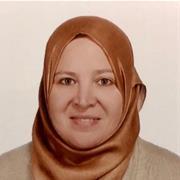Designing, managing, analyzing, and interpreting data in health research studies
Griffith Biostatistics Unit (GBU) staff are expert at designing, managing, analysing, and interpreting data in health research studies. Maintaining the highest quality standards in health research involving human participants is essential, and design and statistical methods play a vital role in ensuring the validity and reliability of study results.
Given its significance, our work has far-reaching implications in clinical, public health, and health service research areas. Our researchers take a proactive approach to advancing the field through both methodological and applied research, while also collaborating with many clinical and biomedical investigators at Griffith University and Gold Coast University Hospital to advance cutting-edge findings.
Reflections
Reflections on Clinical Trials and Biostatistics: Evidence with Purpose
Without data, you're just another person with an opinion. W. Edwards Deming
Clinical trials are the backbone of evidence-based medicine. They are how we separate what works from what merely seems to work. At their core, clinical trials are acts of accountability. Structured ways to test hypotheses, challenge assumptions, and bring clarity to uncertainty. They are how medicine earns its credibility.
But trials don’t run on hope or good intentions. They run on design, discipline, and data. And that’s where biostatistics comes in. Not as an afterthought, but as a driving force from start to finish.
Biostatistics provides the architecture that holds a trial together. From formulating hypotheses and determining sample sizes to guiding randomization and interpreting outcomes, statistical thinking shapes every critical decision. A well-run trial isn't just about whether a treatment works. It's about how confidently we can say so, and what that means for real people in the real world.
The importance of clinical trials isn’t just scientific, it’s ethical. Every dose administered, every risk taken by a participant, demands that we generate knowledge worth knowing. That responsibility falls heavily on the shoulders of trial designers, and biostatisticians are central to that team. We ensure that trials are not just conducted, but conducted well-efficiently, transparently, and with integrity.
As medicine evolves, trials grow more complex: adaptive designs, decentralized protocols, real-world data integration. These innovations promise more flexible and responsive research, but they also raise the stakes for statistical rigor. The numbers still need to hold up, the inferences still need to be valid, and the story the data tells must still be true.
Biostatistics is not just about crunching numbers. It’s about asking the right questions, understanding the context, and making sure that evidence can stand the test of scrutiny. We operate at the intersection of data and decision-making, translating raw outcomes into knowledge that can impact lives.
Looking ahead, the importance of clinical trials will only grow as will the expectations placed on biostatistics. We must continue to develop biostatisticians who not only understand models and methods but also grasp the human significance of the work. In trials, numbers represent people. Our job is to honour that.
In reflection, clinical trials matter because they ground medicine in evidence. Biostatistics matters because it makes that evidence trustworthy. Together, they form a partnership that ensures health care moves forward not on faith, but on facts.
Reflections, August 2025
| Archive |
|---|
| July |
| May-June |
| April |
| March |
What we do
Research
We lead our own research programs and collaborate both within Griffith and externally to enable the delivery of high-quality research. We work with a wide variety of partners and undertake a wide variety of research activities, including partnering on large grant applications, leading methodological research, and advising on and conducting the data management and analysis phases of research projects.
Education
We provide a series of research training activities, including seminars and short courses in our expert areas. We provide supervision and mentoring to early career researchers, and have extensive experience supervising higher degree research students who either want to undertake methodological work, or who could benefit from specific quantitative expertise.
ConsultancyWe have extensive experience providing support to large and small projects. We have experience partnering with academic and commercial organisations, and can advise on all stages of the research journey, from study design to data collection to analysis and presentation. When partnering with the GBU team, health researchers will receive expert guidance and consultancy services based on rigorous, evidence-based approaches. |
Our strengths
 |
Our strengths define us as a cohesive and accomplished team, setting the foundation for our exceptional capabilities. With a team of dedicated professionals and academics at our core, we consistently showcase impressive expertise in addressing intricate challenges head-on. We seamlessly integrate various disciplines, including biostatistics, bioinformatics, data management, and epidemiology, to establish ourselves as a driving force in contemporary health research. Our collaborative approach fuels synergies that lead to pioneering insights, while our adept use of advanced computational techniques propels us toward innovative solutions that push the boundaries of health science. Our unwavering commitment to enhancing healthcare outcomes through rigorous research, insightful data analysis, and methodologies rooted in robust research practices underscores our determination to make a tangible impact in the field. By merging Clinical Epidemiology, Biostatistics, and Data Management, we emphasize the pursuit of top-tier research, leaving a lasting imprint on the trajectory of health advancements. Our strengths encompass not only our skill set but also our resolute pursuit of excellence, solidifying our role in shaping a healthier future for all.
Research team
Professor Robert Ware
Professor Ware is a biostatistician and clinical epidemiologist who has worked as an academic biostatistician for more than 20-years. He has extensive experience working with clinical colleagues on both randomised trials and cohort studies and has developed an extensive theoretical and practical knowledge of the design, conduct and analysis of both observational and experimental studies. Robert has led the Biostatistics team at Griffith since 2016.
Professor Angus Ng
Professor Ng is an experienced biostatistician, with expertise in statistical modelling and computation, image analysis, machine learning, and survival analysis. In the field of mixture model-based cluster analysis he has pioneered the theoretical development of random-effects models for the analysis of complex heterogeneous and correlated data. Angus is an Associate Editor of the Journal of Statistical Computation and Simulation and a member of the ARC College of Experts.
Dr Ping Zhang
Dr Zhang is a health informatician and bioinformatician. Ping’s passion is utilising data analysis and computational modelling to get the maximum value from complex real-world data. She has developed computational modelling techniques and applied them to various health related research, such as diagnosis of cancers, influenza, cardiovascular diseases and diabetes, prediction of progression of Alzheimer’s, vaccine target identification and vaccine scheduling optimisation.
Dr Diana Hermith-Ramirez
Dr Hermith-Ramirez is a Senior Clinical Researcher and Data Manager with expertise in biostatistics and data science. She supports NHMRC- and MRFF-funded projects, oversees the Griffith Biostatistics Unit website, and manages the Griffith Randomisation Service, providing expert support for complex trial designs. Her work integrates clinical insight with advanced analytics to strengthen public health and biomedical research.

Ms Lyn McPherson
With a background in librarianship, Lyn McPherson worked as a research assistant in cancer prevention research. After managing a large NHMRC funded RCT she became research coordinator of the Queensland Centre for Intellectual and Developmental Disability. She has expertise in all stages of the research process from literature review and project design to publication. She has worked at Griffith University part-time since February 2018.
Dr Asmaa El-Heneidy
Dr El-Heneidy is a Research Fellow in Biostatistics. Her PhD studies were focused on Infectious Disease epidemiology. These applied interests reflect her passion for understanding the transmission dynamics, risk factors, and prevention strategies associated with these specific health concerns. By conducting research in these areas, Asmaa contributes valuable insights to the development of effective interventions and evidence-based policies.
Dr Brett Dyer
Dr Brett Dyer is a biostatistics research fellow whose research has focused on longitudinal observational epidemiology methods and applied research, with a thorough understanding in these fields. His main passion is for causal inference (especially causal mediation analysis), prediction/prognosis research, and meta-analysis. Brett has also gained experience in analysing electronic health records, survival analysis, joint modelling of longitudinal and time-to-event data, and many other statistical methods.

Dr Mari Takashima
Dr Mari Takashima is a nurse researcher, certified health informatician (CHIA), and early career epidemiologist /applied biostatistician. Inspired by Florence Nightingale's use of statistics to improve health outcomes, she's passionate about enhancing patient care through robust methodology and data analytics skills. Mari's research interests include paediatric respiratory infections, vascular access, nursing education, research methodologies, clinical trials, meta-analysis, and causal inference methods.

Ms Hasitha Kuruwita
Hasitha Kuruwita is an early career researcher in the field of computational modelling. Her primary research focus is around the implementation of artificial intelligence methods in healthcare, with a specific interest in big data analytics. Currently, she is pursuing her industrial Ph.D. under the supervision of Dr Ping Zhang, focusing on utilizing machine learning to develop predictive models for intensive care outcomes in patients with traumatic brain injury.

Dr Ajeevan Gautam
Ajeevan Gautam has seven years of experience as a clinical anatomist and medical doctor. He is currently enrolled as a full-time PhD student under the supervision of Prof Angus Ng. His PhD Thesis focuses on optimising analytical methods when investigating clinical and interventional techniques in the field of cardiovascular medicine. Ajeevan is committed to having a positive influence on medical research and health. Ajeevan has worked internationally as a clinician and biostatistician.

Ms Nazneen Sultana
Nazneen Sultana is an early-career biostatistician who is currently undertaking a PhD focusing on healthcare in mass gathering events. Nazneen’s PhD study is within the School of Nursing and Midwifery where she is under the supervision of A/Prof Jamie Ranse, Prof. Julia Crilly and Prof. Robert Ware. With an education background in statistics, her research interests include statistical modelling, missing data analysis, and time series modelling.

Dr Morgan Dutton
Dr Morgan Dutton has a background in laboratory-based biomedical science and has completed research in the fields of stem cells, paediatric burns, proteomics and saliva analysis. She also has experience in clinical research coordination. She has recently joined the team as a data manager, in collaboration with the Queensland Cerebral Palsy and Rehabilitation Research Centre. She has particular interest in database creation, optimising efficiency of data collection and data management.

Mrs Emily Young
Emily Young has a BHthSc and completed her Masters in Epidemiology while working as a biostatistican for Professor Ware. She has been the biostatistician for two large NHMRC funded clinical studies: one birth cohort study and one stepped-wedge randomised trial. Emily has developed methodological and practical expertise in the design and analysis of experimental and observational data. Having recently resigned from the Griffith Biostatistics Unit, she continues in an adjunct position.

Dr Philip Jones
Philip Jones is an emergency medicine physician and biostatistician who currently works at Logan Hospital. As well as his clinical work, Philip undertakes biostatical analysis with emergency department colleagues from the Gold Coast University and Logan Hopitals. Philip recently graduated with an M.Biostat, degree from UQ, and has ongoing collaborations with the COVERED COVID research program and multiple ultrasound research studies through the Sonar Group

Dr Iresha Udayamalee
Iresha Udayamalee is a dental surgeon with more than 17 years experience who has Master's and MD degrees in Dental Public Health. She is a research fellow at the School of Medicine and Dentistry, Griffith University and her passion for big data analysis and computational modelling led her to pursue her PhD in Artificial intelligence-mediated personalized treatment planning for Inflammatory Bowel Disease in which she is currently enrolled under the primary supervision of Dr Ping Zhang.
Mrs Nikki Fozzard
Nikki Fozzard is a biostatistician who has worked at Griffith University since 2012. She has a background in biomedical science, particularly in molecular biology and genetics. Nikki completed her Master of Biostatistics in 2021 and is currently pursuing a PhD under the supervision of Professor Robert Ware. Nikki has a full-time role as an academic in the School of Pharmacy and Medical Sciences as a lecturer in undergraduate biostatistics, where she has received awards for her innovative teaching.

Ms Laura McCosker
Laura McCosker is an early career researcher in public health. Laura has a background in nursing, and as well as being enrolled in her PhD is completing an MPH through UNSW. Laura has a passion for improving health outcomes for at-risk, hard-to-reach populations. Her PhD focuses on vaccination delivery in people experiencing homelessness. As part of her studies Laura has conducted RCTs testing different strategies to improve vaccination uptake in this hard to reach population.

Dr Adenike Soogun
Dr Adenike Soogun recently completed her PhD in Statistics from the University of KwaZulu-Natal. Adenike is an Adjunct Research Fellow at Griffith University. She has expertise in statistical modelling, data analysis of complex data, teaching and research supervision across multidisciplinary areas. Her research interests include Bayesian spatial modelling, survival analysis, machine learning, predictive and copula modelling. Adenike has over 10 years’ experience in research and teaching.

Sameen Fatima Ansari
Sameen holds a Doctor of Pharmacy degree and an MPhil in Pharmacology. Her professional journey includes working as a Research Associate on an HEC NRPU project, as well as gaining valuable experience in the pharmaceutical industry. She has also worked as a short-term lecturer at a Pharmacy college. Currently, she is pursuing a PhD in the Biostatistics Unit, focusing on the Epidemiology of Respiratory Syncytial Virus in Queensland infants.

A/Prof Nicolas Smoll
Nicolas Smoll is a Public Health Physician at Sunshine Coast Hospital and Health Service. He holds a PhD in epidemiology, biostatistics, and machine learning from the University of Melbourne. As a Moderna Global Research fellow, his expertise spans COVID-19, RSV, Influenza and other infectious diseases. He transforms public health units into academic centres, bridging raw data and policy decisions. Currently, he's developing a real-time vaccine epidemiology surveillance system in collaboration with Industry and Queensland Health partners.
Publications
Highlights
Ullman, A. J., D. August, T. M. Kleidon, R. M. Walker, N. Marsh, A. C. Bulmer, … P. N. A. Harris and R. S. Ware (2025). A Comparison of Peripherally Inserted Central Catheter Materials. New England Journal of Medicine 392(2): 161-172.
A multicentre RCT showed that when peripherally inserted central catheters were inserted, the risk of device failure was not lower with hydrophobic or chlorhexidine catheters than with standard polyurethane catheters. Prof Ware was Senior Author.
Ng, S. K., P. Baade, G. Wittert, A. K. Lam, P. Zhang, S. Henderson, B. Goodwin and J. F. Aitken (2025). "Sex differences in the impact of multimorbidity on long-term mortality for patients with colorectal cancer: a population registry-based cohort study." Journal of Public Health (Oxf). 47(2): 132-143.
This paper uses flexible parametric survival models with restricted cubic spline functions to assess sex differences in the impact of multimorbidity on long-term mortality and cause-specific mortality for patients with colorectal cancer. Prof Ng was the Lead Author.
Snelling, P. J., P. Jones, D. Bade, R. Bindra, J. Byrnes, M. Davison, S. George, M. Moore, G. Keijzers and R. S. Ware (2023). Ultrasonography or Radiography for Suspected Pediatric Distal Forearm Fractures. New England Journal of Medicine 388(22): 2049-2057.
A multicentre RCT showed that, in children presenting to an emergency department with a suspected upper arm fracture, initial diagnosis with ultrasound was non-inferior to X-ray in terms of physical function 4-weeks after injury. Prof Ware was Senior Author.
J Xiang, J., H. Xu, S. Pokharel, J. Li, F. Xue and P. Zhang. (2022). Building a knowledge base for colorectal cancer patient care using formal concept analysis. BMC Medical Informatics and Decision Making 21(Suppl 11): 369.
A hierarchical clustering method was used to build a knowledge base with a population of colorectal cancer patients, from which the information retrieved can be used for treatment planning recommendations towards personalised medicine. Dr Zhang was Senior Author.
El-Heneidy, A., R. S. Ware, S. B. Lambert and K. Grimwood (2022). Sapovirus infections in an Australian community-based healthy birth cohort during the first 2-years of life. Clinical Infectious Diseases 76(6):1043-49.
The epidemiology of sapovirus infections in a high-income country is described using community-based birth cohort data. Sapovirus infections are common in Australian children under 2-years of age. Dr El-Heneidy was First Author.
Dyer, B. P., T. Rathod-Mistry, C. Burton, D. van der Windt and M. Bucknall (2023). Diabetes as a risk factor for the onset of frozen shoulder: a systematic review and meta-analysis. BMJ Open 13(1): e062377.
This systematic review and meta-analysis summarised six case-control studies and two cohort studies to conclude that diabetes is associated with the onset of frozen shoulder. Dr Dyer was First Author.
Takashima M. D, Y Ezure, A. J. Ullman and R. S. Ware. (2024). Methodological Progress Note: Choosing analytic methods for randomized trials. Journal of Hospital Medicine 19(4): 312-315.
This methodological paper examines how the target audience, and the value they place on information, should guide choice of whether intention-to-treat or per protocol findings are presented in RCTs. Dr Takashima was First Author.
Innovative Services and Partnerships
Griffith University's Clinical Trial Unit provides state-of-the-art facilities and professional coordination services for phase I-IV clinical trials. We conduct a wide range of investigator-initiated trials across various therapeutic areas including infectious diseases, respiratory and neurological diseases.
The Griffith Randomisation Service provides automated centralised randomisation for research studies, overseen by experienced statisticians, researchers, and with the support of Griffith Information Services. The randomisation service is available for university trialists working in the academic, healthcare and industry sectors.
At the forefront of an evolving healthcare system, the Centre for Applied Health Economics (CAHE) conducts multidisciplinary research, including health economics, health services research, implementation science, and biostatistics. Our work delivers leading advice with significant policy impact. We employ innovative methods and analysis to address complex problems, providing economic and health benefits. The evidence we produce influences health policy and practice, translating into real-world improvements globally. We also contribute to the development of health systems and share knowledge and skills in health technology assessment with other countries.
Through leadership and innovation in teaching, research and community engagement, Griffith Health helps to create sustained improvement in health and healthcare for local, national and international communities. Our degrees provide students with the theoretical guidance and practical experience necessary to ensure their success as they transition into the next generation of health professionals.






